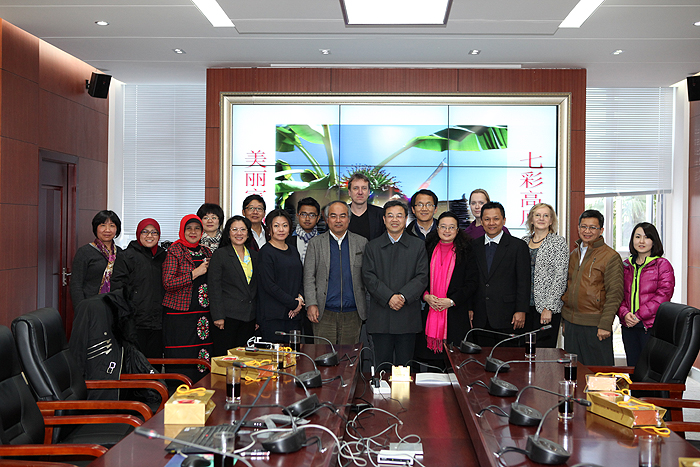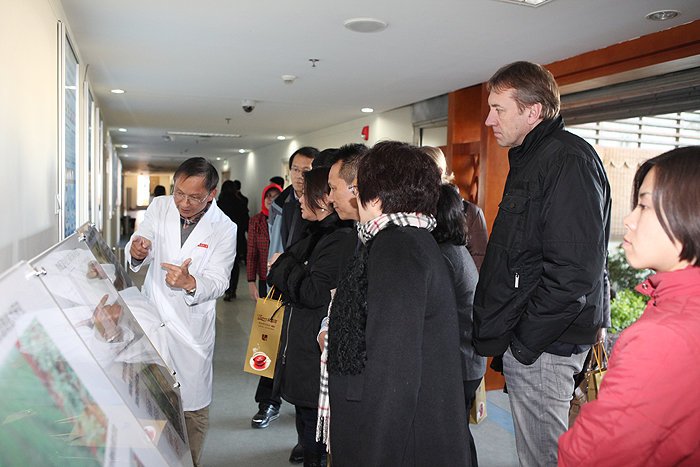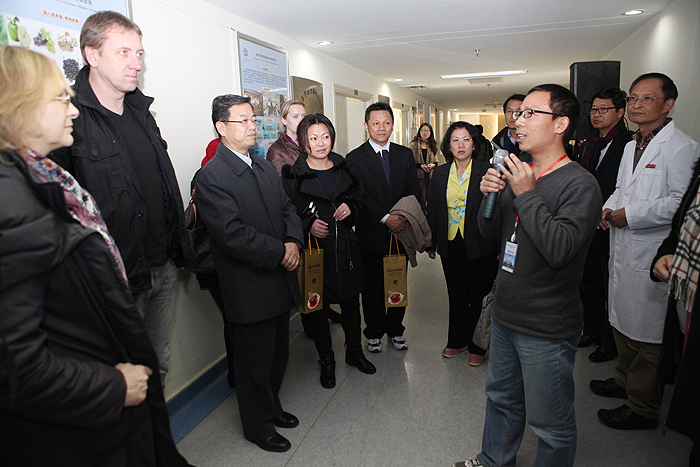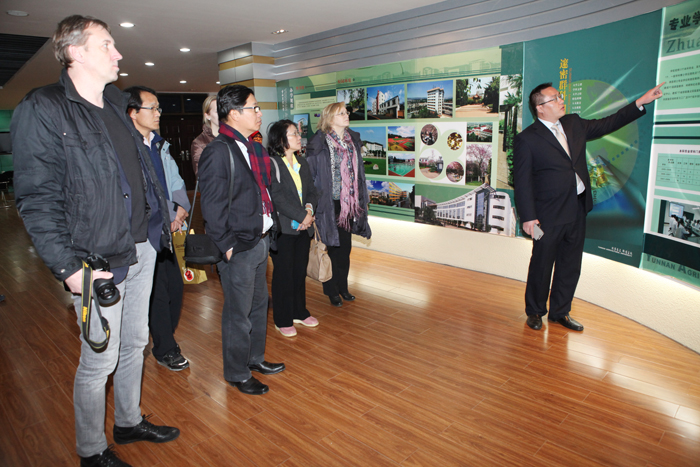
Group members have photo taken together
On December 10th 2013, sponsored by China Academic Degrees & Graduate Education Development Center and organized by Yunnan Agricultural University, the Opening Session of Asia-Europe Higher Education Qualification Mutual Recognition Collaborative Working Group was held in the Tea House of our university. Li Jun, Director of China Academic Degrees & Graduate Education Development Center and Yan Bingchen, head of Foreign Education Office of Department of International Cooperation and Exchanges of Ministry of Education of People’s Republic of China delivered speeches during the session. Tang Ying, vice president of our university, attended the session as the only representative of local universities and colleges in China. The session was hosted by Wang Lisheng, deputy director of China Academic Degrees & Graduate Education Development Center and it welcomed 34 participants from 11 countries and international organizations.
The Working Group discussed and passed its regulations, and reached a consensus on three action projects, including establishment of a collaborative information center website for Asian countries, drafting cooperative principles, guidelines and operation manual of Asia-Europe Higher Education Qualification Mutual Recognition and preparation to start the collaborative network organization of Asia-Europe Cross-Border Quality Assurance.
All delegates seconded that facilitating Asia-Europe Higher Education Qualification Mutual Recognition plays a key part in strategic cooperation of Asia-Europe education. The three action projects passed by the session proposed schedule and roadmap for the progress of Asia-Europe Higher Education Qualification Mutual Recognition. China’s efforts in organizing the Working Group and in the session received much appreciation. The second session of the Working Group will be held in Riga, Latvia in the second half of 2014.
It is reported that the Fourth Session of Asia-Europe Ministers of Education held in Kuala Lumpur in May, 2013 decided that China is responsible for coordinating and building the Working Group, in order to fulfill the Declaration of Higher Education Qualification Mutual Recognition within Asia-Europe Meeting Framework (Beijing Declaration for short). The Working Group consists of China, Estonia, Austria, Belgium, Germany, ROK, Latvia, LTU, Malaysia, Brunei, Indonesia and UK, China being the group leader.

President Sheng Jun interviews the delegate members
On the afternoon of December 11th, delegates to the session visited Yunnan Agricultural Industry Research Institute with Plateau Characteristics, State Engineering Research Center for Agricultural Biodiversity Applied Technologies, key labs for Puer Tea study authorized by Ministry of Education and History Museum of our university.
President Sheng Jun expressed warm welcome to all the participants, gave an introduction to Yunnan agricultural development with plateau characteristics and presented Pu’er tea, a scientific product of the university as a gift. He pointed out that the global agriculture today enters a new era with four distinguishing features: ecological agriculture with organic and green products as its core; sound agriculture with efficiency and quality as its content; data agriculture with facility and systemization as its feature and profitable agriculture with characterization and industrialization as its way out. President Sheng took Pu’er tea, Yunnan tea-seed oil, Zhefang Rice, wild pigs from Gaoligong Mountain for example, underlined that Yunnan agriculture must follow a path of characteristics, high quality, idea-upgradation, and horizon-broadening, ceaselessly lifting added value of agricultural products, cultivating Yunnan agriculture into a sound agriculture with well-made products, and helping plateau food find way to people’s life. During the session, President Sheng also introduced Online Agriculture and Star-rating Food Safety System in Yunnan. Our guests showed great interest and spoke highly of the contribution of Yunnan Agricultural University to agricultural development at large.

Delegates visit State Engineering Research Center for Agricultural Biodiversity Applied Technologies

Delegates visit key labs authorized by Ministry of Education for Puer Tea study

Delegates visit History Museum of our university